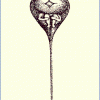If degradation in the gut is the main concern, what about other routes of administration? Transdermal, sublingual and insufflation come to mind. There is always im or sub q injection. That is, if the stuff really does work.
transdermal and sublingual sometimes work for very small molecules, but proteins are huge. Skin is, after all, designed to keep things out, not let things in. It's pretty good at that. Insufflation is better for some things, but again, small molecules are best there. To get proteins into the system, injection is the most reliable route. That said, glisodin doesn't seem to have that much of a problem, in that it does appear to work systemically. If it was naked SOD, it probably wouldn't work, but being complexed with gliadin seems to do the trick.



















































